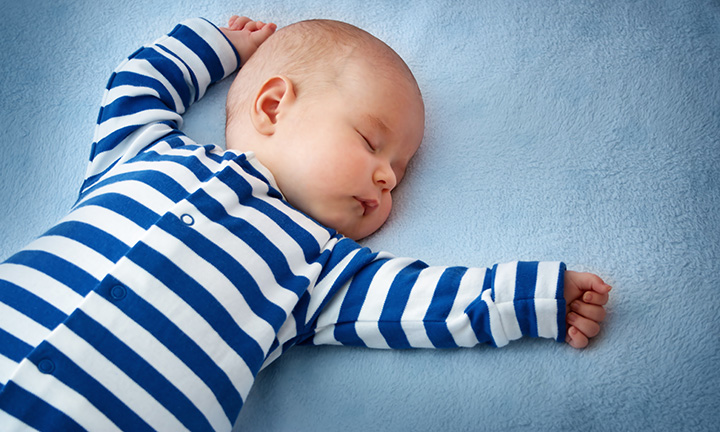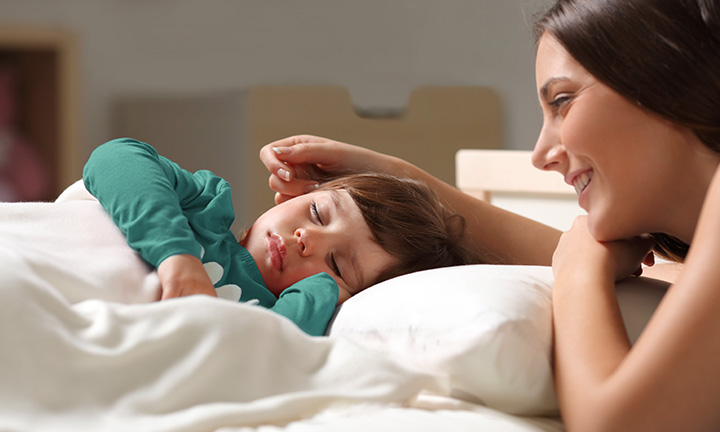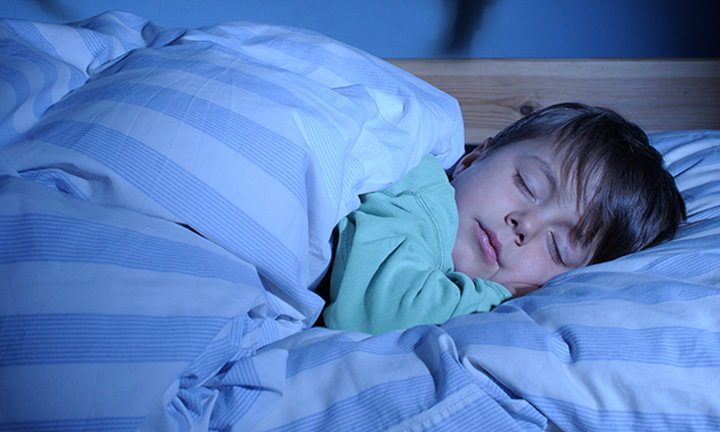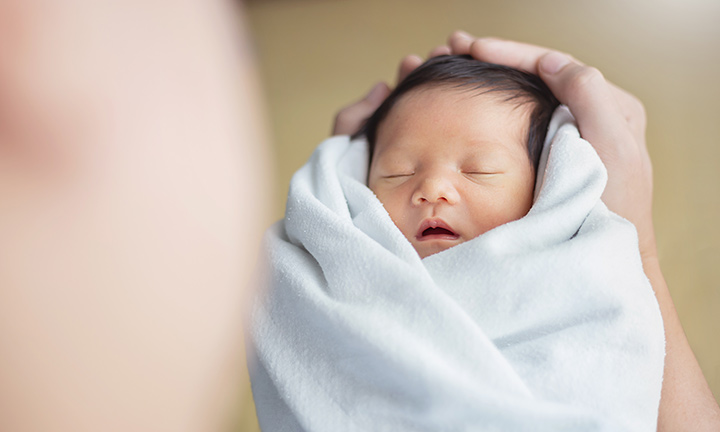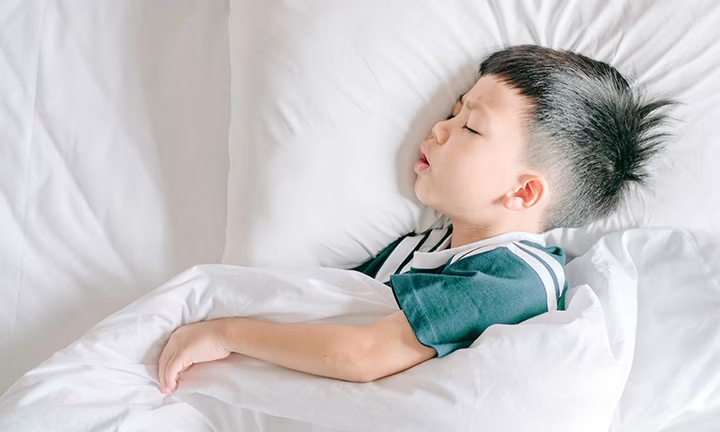
Bedwetting (Nocturnal Enuresis) in Children
Bedwetting in children might be more common than you think. Known medically as nocturnal enuresis, most children outgrow this type of bedwetting by 5 years old, but for some, it may still continue. Although bedwetting can be challenging for you and embarrassing for your child, there’s plenty you can do to help your little one through this common phase.
What Is Bedwetting (Nocturnal Enuresis)?
When wetting the bed happens in children only during sleep, it’s officially called night-time incontinence or nocturnal enuresis, or, more commonly, bedwetting. This involuntary urination happens while your child is asleep and is fairly common, affecting about half a million children in the United Kingdom.
A familiar morning scene in many households may include wet sheets and pyjamas, and an embarrassed child. But know that this doesn’t mean your efforts with potty training have gone down the drain! This is a normal part of your child’s development and there are many bedwetting solutions that you can try.
How Common Is Bedwetting in Children?
All children wet the bed and have ‘accidents’ at some point during the long task of potty training. This is a normal, expected part of the learning process! Bedwetting will undoubtedly occur as your child starts potty training, which usually takes place between the ages of 2 and 3 years.
As your little one works their way through potty training, bedwetting gradually becomes less prevalent and eventually disappears altogether. In many children, this happens around the age of 5, but it’s still normal for your child to wet the bed after turning 5. Staying completely dry at night is the final leg of the potty-training process, and some children take longer than others to complete it.
Keep in mind that bedwetting still happens in 20 percent of 5-year-olds, six percent of 7-year-olds and in over one percent of teenagers. Additionally, bedwetting runs in families as follows:
Therefore, bedwetting (nocturnal enuresis) in children is quite common and isn’t anyone’s fault – certainly not the fault of your child.
What Causes Bedwetting?
Not long ago, medical experts considered bedwetting a simple issue that children would eventually outgrow without treatment or help. Today, it’s better understood as a more complex issue involving several factors.
Thanks to this understanding, we now know that there are four main reasons why bedwetting happens in children:
In addition to these common causes of nocturnal enuresis in children, there are a few potential underlying health issues that can influence your little one to wet the bed:
Solutions for How to Manage Bedwetting
Although the ‘watch and wait’ tactic was once the go-to solution for bedwetting – as experts believed children would eventually outgrow the behaviour – this method is no longer recommended. If left untreated, children might not outgrow bedwetting, and research shows that the sooner you address bedwetting, the sooner your little one may have dry nights.
It takes time and patience, but you’ll get there in the end! In addition to the 10 tips below, wearing Ninjamas Pyjama Pants to bed can ease anxiety and help your child wake up confident by keeping their skin (and bedclothes) dry and comfy through the night. Ninjamas come in 2 sizes: 4-7 years and 8-12 years. The cool designs, a choice of colours and Quietcloth material mean they don’t look, feel or sound like nappies – so older kids can wear them with confidence too.
Here are 10 tips for how to manage bedwetting in children:
When to See the Doctor About Bedwetting
Bedwetting is not usually a cause for concern, even after potty training. However, experts recommend that children who are still not dry at night by the age of 5 see their doctor to help identify the causes.
Many communities and schools offer specialised healthcare professionals and clinics for enuresis. Because the causes of bedwetting can be complex, the doctor will first determine why your child is still experiencing nocturnal enuresis before suggesting a solution.
Your doctor is also available to help when
Regardless of what stage you’re at with potty training and bedwetting, your doctor is always there to help! Consult your GP if you and your child are finding it difficult to manage bedwetting for any reason.
Solutions for Bedwetting (Nocturnal Enuresis)
In some cases, the doctor may recommend simple home treatments for your child, such as discouraging them from drinking liquid before bedtime. If constipation or diabetes is an issue, the provider may recommend treatment for that. However, there are also other methods the doctor might suggest you try, such as using medication or a bedwetting alarm.
Bedwetting Alarm
Bedwetting alarms are often the first solution recommended for kids and teenagers under the age of 19. They’re effective in that they train children to wake up when they need to wee.
The bedwetting alarm works by awakening your child as soon as it senses wetness. However, the device isn’t fool proof. Many children sleep right through the alarm! You, as the parent, may need to step in and wake up your child when you hear the alarm.
When used according to the doctor’s instructions, a bedwetting alarm may help condition your child to wake up when they need to use the potty. Try to be patient, though, as it may take at least four weeks of use to be successful.
Medication
Oral medicines prescribed by the doctor are also a possibility for older children. They work by prompting the kidneys to produce less wee, so your child should take the medicine right before going to bed. These types of medications may come in handy when used occasionally for specific situations, such as sleepovers and summer camp.
If your little one is still bedwetting after trying these solutions, the doctor might recommend other forms of medication or treatment on a case-by-case basis.
FAQS AT A GLANCE
Bedwetting has four typical causes in children:
- A too-full bladder
- A bladder that can’t stretch enough
- Not waking when the bladder sends a signal that it’s full
- Feeling stressed at home or school.
The Bottom Line
Bedwetting has happened to just about everyone – possibly even you when you were a child! It isn’t uncommon for children to experience bedwetting during daytime and night-time potty training. And although most children outgrow bedwetting around the age of 5, for some, nocturnal enuresis may continue.
There are many reasons your child might wet the bed, and none of them are your little one’s fault. So, try to stay positive and always reassure your child that it was just an accident and that it happens to many children. Meanwhile, there’s plenty you can do to manage the bedwetting, such as encouraging your child to use the loo before going to sleep, and to drink enough in the daytime so there’s no need for a bedtime drink.
If you’re concerned about your child’s bedwetting or your little one is still wetting the bed after turning 5 years old, see a doctor for guidance. The doctor may recommend the use of a bedwetting alarm to help condition your child to wake when they need to wee or may decide to prescribe medicine. In rarer cases, tests may indicate that the bedwetting is due to a medical condition that needs to be treated.
Rest assured that sooner or later – with a little bit of patience, effort and encouragement – every child, including yours, will outgrow bedwetting.
The information in this article is based on the expert advice found in trusted medical and government sources, such as the National Health Service (NHS).The content on this page should not replace professional medical advice. Always consult medical professionals for full diagnosis and treatment.



